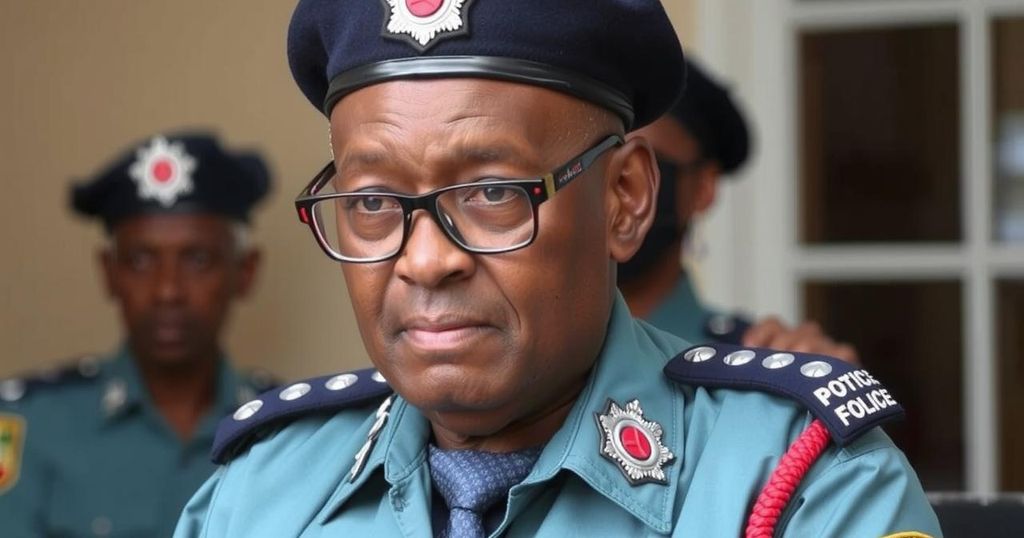Kenya Police Chief Ordered to Court Amid Ongoing Kidnapping Crisis

The Kenya high court has summoned Inspector General of Police Douglas Kanja to address rising abductions linked to anti-government protests. Legal actions have arisen following the disappearance of six young men, prompting demands for accountability from police amid accusations of involvement by a secretive unit. The judiciary has mandated police to provide answers or present the missing individuals in court, highlighting ongoing human rights issues in the country.
The high court in Kenya mandated the country’s Inspector General of Police, Douglas Kanja, to appear for questioning due to increasing public outcry regarding recent abductions. These kidnappings have intensified since significant anti-government demonstrations last year, leading to political unrest involving President William Ruto. The surge in disappearances during the Christmas holidays prompted human rights organizations to file legal actions against law enforcement, pressing for the retrieval and explanation concerning six individuals who remain unaccounted for. Allegations persist that two of the abductees were taken after disseminating artificial intelligence-generated images of President Ruto deceased, and although five were released this week, details of their captivity remain unclear. Rights groups attribute these abductions to a clandestine unit allegedly comprised of police and intelligence operatives, despite police denials of any involvement.
In a recent court hearing, the judiciary compelled the police to present the missing men for review or justify their absence under oath. Among the abductees, it was reported that Bernard Kavuli looked weakened and had previously been detained while shackled by armed assailants, signaling the involvement of law enforcement as only they are typically equipped with such weaponry. His attorney has vowed to persist until the Inspector General’s presence is secured in court. The issue escalates further as the Kenya National Commission on Human Rights documented 82 cases of abduction post-protests, with a significant number still unaccounted for, reflecting a dire human rights crisis.
The situation reflects a troubling intersection between state authority and citizen safety, as allegations against law enforcement threaten to undermine public trust in governmental institutions. The legal proceedings are critical not only for the individuals involved but also for the future of human rights advocacy in Kenya and the ongoing political landscape. The families of the victims continue to express despair over the lack of accountability, further exacerbating fears surrounding state-sponsored violence and impunity in the country.
The political climate in Kenya has been fraught with tension following widespread anti-government protests that erupted last year. These demonstrations significantly challenged the authority of President William Ruto’s administration, escalating into a series of alleged human rights violations, including kidnappings and forced disappearances. Rights organizations have taken an active role in advocating for justice, often filing legal complaints against state actors involved in these violations. The increasing number of abduction cases, highlighted by the Kenya National Commission on Human Rights, has drawn significant attention to the issue, demanding accountability and transparency from the police and government authorities. This context is essential in understanding the urgency of the recent court summoning of the Inspector General of Police.
In conclusion, the high court’s directive for Kenya’s police chief to attend a hearing on the recent wave of abductions underscores the gravity of the human rights crisis currently facing the nation. The implications of these cases extend beyond individual circumstances, reflecting severe concerns about government accountability and the rule of law. As public outcry intensifies, the call for justice grows louder, emphasizing the need for urgent action to address these alarming violations and restore faith in the nation’s law enforcement agencies.
Original Source: www.barrons.com







